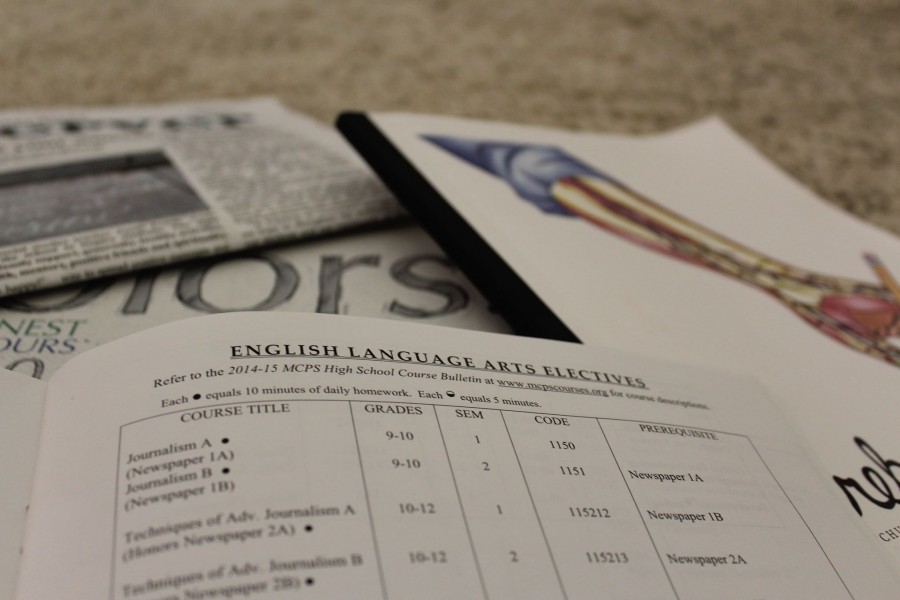School Publications Deserve an Arts Credit
September 29, 2015
Every day in Newspaper, Yearbook and Literary Magazine, students use their creativity to produce forms of art–writing, photography and design. However, they aren’t rewarded with an arts credit.
By eliminating the arts credit for these classes, MCPS not only invalidates the work these students do, but affects whether students even take the classes at all.
Last year, Newspaper, Yearbook and Literary Magazine classes were granted fine arts credits for graduation. When the subject came up this summer, it was determined that MCPS does not allow these classes to count for arts credits at other schools, and the opportunity to earn an art credit was revoked.
According to the head of the Arts Academy, Deanna Svrcek, the MCPS Arts Coordinator and the MCPS English Coordinator were both very adamant that Newspaper, Yearbook and Literary Magazine at CHS should not continue to give students arts credits.
Observer staff members junior Joel Goldstein and sophomore Zeenat Hammond both had to drop Journalism once the change was announced because they had to enroll in an arts class to earn the credit for graduation.
According to Principal Joan Benz, confusion arose because these classes count as arts for the Creative and Performing Arts Academy.
The classes that are included in the Arts Academy are under the categories of Choral/Instrumental Music, Newspaper/Journalism, Theatre, Visual Arts, Yearbook and Literary Magazine. Journalism, Yearbook and Literary Magazine still count for the Arts Academy, but they no longer count toward the fine arts credit due to MCPS policy.
The fact that these courses are included in the Academy proves that they are indeed valid art forms that should provide students with an arts credit. Just as students who spend weeks painstakingly painting masterpieces earn it, students who produce monthly and yearly publications should earn it as well.
According to Svrcek, the Academy was formed as a way to help students indulge in their artistic passions while simultaneously enhancing their learning experience. It is a way to give learning a purpose as it takes students’ passions and helps make them academic.
Frankly, this is what credits should be doing instead of discouraging students from taking classes they are passionate about simply because of a requirement they need to fulfill.
Svrcek never questioned why Journalism classes counted for Arts credit last year. Journalism is in the Arts Academy, and therefore is an arts class and should fulfill the requirements for a credit.
Classes must meet high requirements and expectations in order to qualify for an arts credit in MCPS. This was clearly designed to provide students with a well-rounded high school experience.
According to English Language Arts Supervisor James Fliakas, The Code of Maryland Regulations (COMAR), defines fine art as art, dance, music and theatre.
However, the organization of these credits needs to change. Literature is an art.
This situation brings MCPS to face a fact–students are being forced to place too much value on course credit, rather than experience and productive learning.
A class is not any less valuable because it does not count for a certain credit. However, this is often hard for some students to see, and since students need these credits to graduate, sometimes they must choose GPA and credits over passion. Students should be able to take these classes without it causing a conflict in their schedules.
As the rules that prevent these classes from counting as arts credits come from the county, it is understandably challenging to successfully overturn MCPS policy. However, it is important for students to take classes they are passionate about, regardless of the credits they may or may not provide.


